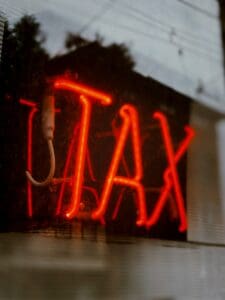THOMAS PAINE’S SOLUTION FOR POVERTY
By: PAUL MEANY
Thomas Paine was one of the first people to argue in favor of what we now refer to as universal basic income.
The idea of providing everyone a basic income has evolved over the last half century from a pipe dream into a serious proposal with broad, cross‐ideological support. However, few advocates know anything about the origins of this idea. In the western world, Thomas Paine was the first advocate of a program resembling basic income in his 1797 pamphlet, Agrarian Justice. However, while today many of the arguments for basic income are centered around efficiency and cost‐effectiveness, Paine offered a rights‐based approach to justifying basic income. Both Paine’s arguments and his historical context reveal his nuanced views on the subject and the revolutionary potential of changing how we administer welfare.
Paine was prompted to write Agrarian Justice in 1797 as a reaction against two popular but opposed views on how to deal with poverty as articulated by Richard Watson and Francois Noel Babeuf. Paine thought both approaches were ineffective, so he set out his own vision for how he believed that poverty could be eradicated.
RICHARD WATSON AND DIVINELY ORDAINED POVERTY
Richard Watson was the bishop of Llandaff in Wales who had written a book, entitled An Apology for the Bible, in response to one of Paine’s previous works, The Age of Reason, in which Paine heavily criticized organized religion in favour of Deism. (This did little, you can imagine, to endear Paine to the good bishop.) But Paine was not responding to Watson on the topic of religion. While flicking through An Apology for the Bible, Paine spotted one of Watson’s sermons entitled, “The Wisdom and Goodness of God, in having made both Rich and Poor.” The notion that God had divinely ordained who was to be poor and who was to be rich was, to Paine, a hypothesis that needed to be disproved, debunked, and then thrown in the trash for good measure.
Paine explained, “It is wrong to say God made rich and poor; he made only male and female; and he gave them the earth for their inheritance.” The idea that God had ordained some to wretched misery and some to opulent luxury turned Paine’s stomach.
Surprisingly, Watson was not alone in his assertion that poverty was a natural and unavoidable part of life. England (where Paine lived) had, since the 16th‐century, implemented laws for relieving the poor, but the relief they offered only aimed to shelter the poor from the most wretched extremes of poverty. Little more was expected. The Poor Laws were built around the premise that poverty was a natural part of life that could never truly be eradicated and therefore should only be managed and controlled. The Poor Laws were devised primarily to prevent social unrest, food riots, and to eliminate the need for private individuals to contribute aid directly to the poor. A further issue with the Poor Laws was that each parish was responsible for their own poor and funds were raised from local property taxes. Overseers in each area had the final say on who was eligible for relief and how much they were to receive. This created a system which incentivized mistreatment of the poor, especially those from outside the parish, and was unpredictable and inhumane.
FRANCOIS NOÉL BABEUF: THE MOST EXTREME EQUALITY
The second person in Paine’s thoughts while writing Agrarian Justice was the extreme political radical Francois Noél Babeuf. Babeuf had recently been arrested for his involvement in a conspiracy to overthrow the French government. When put on trial at the high court of Vendome, Babeuf, when given the opportunity to defend himself, chose instead to passionately explain his utopian plan for a better France at great length as a justification for his planned actions. Babeuf was quickly condemned to death, but, thanks to his impassioned albeit unwise defence, we have a record of what Babeuf believed.
Babeuf aimed for complete equality, that all people would perform an equal share of unsavoury labour and that all people would benefit equally from said labour. For Babeuf it was imperative that “society must be made to operate in such a way that it eradicates once and for all the desire of a man to become richer, or wiser, or more powerful than others.” To this end, private property was to be completely abolished in all of its forms. The obvious question is how would this be achieved? Babeuf was not a starry‐eyed idealist; he knew that to achieve his goals the state would have to become nearly omnipresent and omnipotent .
Familial ties were to be broken and children sent to live communally in boarding school. Any sort of writing that dared to stray from the state‐mandated ideology of equality was to be censored. Even peoples’ clothing was to be plain and simple so as not to make anyone jealous of each other. Babeuf had no qualms with the all‐encompassing nature of the state; indeed, he positively longed for a totalitarian society unprecedented in its scope and willing to regulate every aspect of life down to the minutiae of daily activities.
Paine had once lived in revolutionary France and he admired the revolutionary struggle for both liberty and equality. But for Paine, equality “is often misunderstood, often misapplied, and often violated,” especially by people like Babeuf and his co‐conspirators.
Paine had no time for either the Poor Law of the English or the egalitarian Utopia envisaged by Babeuf. The already existing Poor Laws of England did little for the poor beyond providing a meagre living (even if one were not first turned away by the arbitrary decision of a parish overseer). The extreme communist dreams of Babeuf were horrifying to Paine, a person dedicated to liberty as enshrined through natural rights that every government ought to secure. Paine had great confidence in the power of commerce and free‐trade to create lasting prosperity for all classes of people. But progress was slow and not always as constant and uniform as he had once theorized.
Paine’s Agrarian Justice aimed to provide a solution to the problem of poverty that lay somewhere between these two ill‐guided extremes. On one hand, he wished to avoid the particularism and paternalism of the Poor Laws; on the other hand, he also wanted to avoid the Leviathan state of Babeuf that Paine believed could never coexist with liberty in any meaningful sense.
POVERTY AND CIVILIZATION
Agrarian Justice begins with Paine stating that poverty is not a natural state of life but that it is in fact man‐made. Paine believed that the natural state of man is something like what he imagined the Native American way of life to be. The first people were hunter‐gatherers who had no real need for private property as a concept. In these early human societies, no one is particularly rich but nor is anyone particularly poor. The soul‐crushing poverty Paine had observed could only be found in “civilized life” where the “most affluent and the most miserable of the human race are to be found.” But why is this the case? Paine answers that the root cause lay in the concept of private property.
IS PRIVATE PROPERTY NATURAL?
Paine is unambiguous that in the state of nature “there could be no such thing as landed property originally.” People in the state of nature were allowed to occupy land but they had no right to own land as their own in perpetuity. Rather, “land… is the free gift of the Creator in common to the human race.” The earth belongs to every person and in a state of nature no one has a right to claim any particular part of that divine inheritance as their own. Paine notes that God did not “open a land office, from whence the first title‐deeds should issue.” For Paine, there are two principal kinds of property: natural property, which includes “the earth, air, water,” and artificial property (meaning private property), which is created by humans.
Paine views the invention of private property as an inseparable outcome of the development of agriculture. John Locke–whose writings exerted a huge influence on the American revolutionaries–had argued that when a person worked on the land by ploughing, tiling, fencing, or developing any sort of improvement upon a parcel of land, they had mixed their labour with the land. While Locke believed the earth was given to humanity as a whole, he believed by mixing one’s labour with the land, people could justifiably own private property.
Paine partially agreed with Locke. Yes, improving land for cultivation is beneficial and people should be entitled to the fruits of their work. However, Paine also believed “that it is the value of the improvement only, and not the earth itself, that is individual property.” This is not an easily discernible distinction. Because of “the impossibility of separating the improvement made by cultivation from the earth itself” confusion arose and the common right of all was replaced with the right of particular individuals to own land in perpetuity.
With the growth of agriculture, the earth no longer belonged to everyone but to a select few who created a monopoly on land that dispossessed the rest of the population of their natural inheritance of the earth. Remember that around this time powerful aristocracies in Europe owned huge amounts of wealth and property, which they received through both inheritance and state assistance. This resulted in civilized states having the “contrast of affluence and wretchedness continually meeting,” which resembled “dead and living bodies chained together.” Through ownership of private land, property passed down through generations making some extremely wealthy; meanwhile a much larger and much less fortunate group are disenfranchised from owning property which has all been claimed and monopolized by the select few. Because of this, a huge number of people never own property and are robbed of what Paine saw as their natural inheritance.
IS RETURNING TO THE STATE OF NATURE AN OPTION?
If Paine is right and civilization causes a kind of systematic poverty unheard of amongst the Native Americans, the solution seems pretty obvious: abandon civilization and return to being hunter‐gatherers in the woods. Even if for some reason people wished to pursue this approach, it would be impossible. By 1797 the earth was too populous to be supported through hunting alone, which requires vast tracts of land for even the smallest of populations. We cannot return to the state of nature, for as Paine explained, “It is always possible to go from the natural to the civilized state, but it is never possible to go from the civilized to the natural state.” Civilization is here to stay, like it or not. The right course of action is thus to “remedy the evils and preserve the benefits that have arisen” from humanity’s transition to civilization.
PAINE’S SOLUTION
Paine was serious when he said that the earth was given to humanity in common and that “every person born into the world is born the rightful proprietor of a certain species of property.” But he had no intention of abolishing private property and replacing it with some form of common ownership. The improvements one makes to land and the surplus value that doing so creates legitimately belongs to those who currently own private land. Paine instead wished to give every person their justly deserved inheritance.
Paine proposed that owners of property should pay what he called ground rent for the unimproved land which they inhabited. When an owner of cultivated land dies, their property would be taxed at a rate of 10%. The wealthy would also be expected to pay some of this personal property upon their death into the fund. Paine justified this inheritance tax on the principle that “beyond what a man’s own hands produce, is derived to him by living in society.” Paine was not arguing in favour of redistributing all wealth but instead argued that merely some forms of wealth, those not directly derived from one’s labour, were more eligible for taxation. Paine had no substantive issues with some degree of inequality as he explained: “I care not how affluent some may be, provided that none be miserable in consequence of it.”
The revenue from this tax would be pooled into a fund for the equal benefit of all. Paine believed this fund was to be used for three important purposes. Firstly, upon reaching the age of twenty‐one every person would receive a lump sum of 15 pounds. (For some degree of comparison, in Paine’s time an able‐bodied working man would earn roughly 23 pounds if he worked continuously throughout a year.) This lump sum would be given to everyone regardless of gender, status, or wealth in order “to prevent invidious distinctions.” Secondly, a sum of money would be given annually as a sort of pension to anyone over the age of fifty‐five. Lastly, any remaining residual funds would be given to the “lame and blind.”
THE BEGINNINGS OF BASIC INCOME
What Paine was proposing was one of the first‐ever instances of basic income. According to the Stanford Basic Income Lab, basic income has five characteristics: it must be universal, unconditional, cash‐based, paid on an individual basis, and lastly a recurring and regular payment. Paine’s plan perfectly fits four out of the five characteristics, only lacking the recurring and regular element for people under fifty‐five. But four out five is pretty close for someone writing hundreds of years before Stanford even existed.
THE BENEFITS OF PAINE’S PLAN
Paine believed there were benefits to be realised by adopting his plan. For those aged twenty‐one, the lump sum would offer capital to buy some property, start a business or save for future ventures. This lump sum, paid to young people, would hopefully prevent people from ever falling into poverty. But it was not just to prevent poverty; it was also to promote a degree of independence and enterprise such that people would not have to rely solely on their employers but would instead have an opportunity to work for themselves. For those over fifty‐five, it would provide a basic pension to avoid destitution if a person could not work due to age‐related illnesses.
On a broader scale, Paine believed that his plan would help defuse the tensions between the propertied and non propertied classes.
Since the property of the wealthy would eventually find its way to all people, Paine speculated that crimes against property would decline sharply and that the poor would no longer question the property rights of the rich. The poor would greatly benefit from the increased wealth of the rich as it was taxed and divided up to all impartially. With this system in place, people could justifiably pursue wealth to their heart’s content as doing so would ultimately benefit everyone else.
A RIGHTS BASED APPROACH TO BASIC INCOME
While Paine believed that his plan had a huge number of benefits, he did not ground its logic upon utilitarian grounds. For Paine, this was a matter of justice, not charity. All people have a right to the earth, but since we cannot return to the days before civilization, this system of taxation was the best method of compensating people for their lost inheritance of the earth’s resources. Since some form of compensation was necessary to pay those who were disinherited from the opportunity to own property, Paine believed this was not redistribution. It was giving people what they deserved.
Simplicity was a hallmark of Paine’s thought. He believed that simple things are harder to corrupt; and in an age where bureaucracies and excessive laws have run rampant, maybe the simplicity of Paine would be a breath of fresh air in the world of policy. Libertarians might shake their fists at Paine for not subscribing to a more robust concept of property rights, but Paine was at his core an advocate of free‐market capitalism. Paine believed that the “invention of commerce…is the greatest approach towards universal civilization.” But as he matured, his optimism for commerce was tempered by the reality of grinding poverty for a worrying number of people. Agrarian Justice was Paine’s attempt to sand off the rough edges of capitalism by providing a minimum level of economic security and independence to the poorest. But this approach was based upon rights, specifically everyone’s right to their “natural inheritance.”
THE RELEVANCE OF AGRARIAN JUSTICE
For a time Paine was not considered a serious thinker and more of a political journalist who aimed to incite the passions of his readers. This assessment, while fading in popularity, still plagues Paine’s legacy. Agrarian Justice is an underrated and underappreciated work that, in a short few pages, made more novel claims than many philosophers make in their entire career. Paine was among the first people who theorized that poverty could not only be managed but possibly eradicated.
Adding to his already impressive achievements, Thomas Paine was the first advocate of basic income, an idea which has been advocated by people from all kinds of viewpoints including the libertarian giant Milton Friedman, but also more left leaning figures such as Guy Standing and Thomas Picketty. Even people such as the civil rights Hero Martin Luther King and Pope Francis have lent their support to the idea of basic income. The Overton window has been slowly shifting towards basic income, but especially over the last few years as the prospect of automation and the unique problems caused by Covid‐19 have escalated interest in some kind of basic support for the unemployed. While Agrarian Justice was not particularly popular when it was first published, perhaps now the confluence of circumstance and factors that will ensure that Paine’s most underrated work will finally get the attention it rightly deserves.
See original article here: https://www.libertarianism.org/articles/thomas-paines-solution-poverty





















